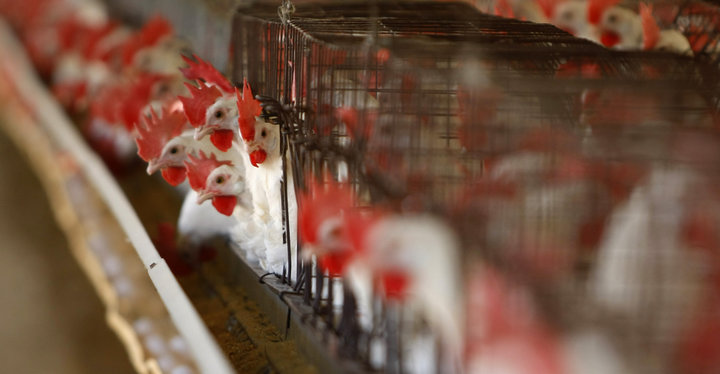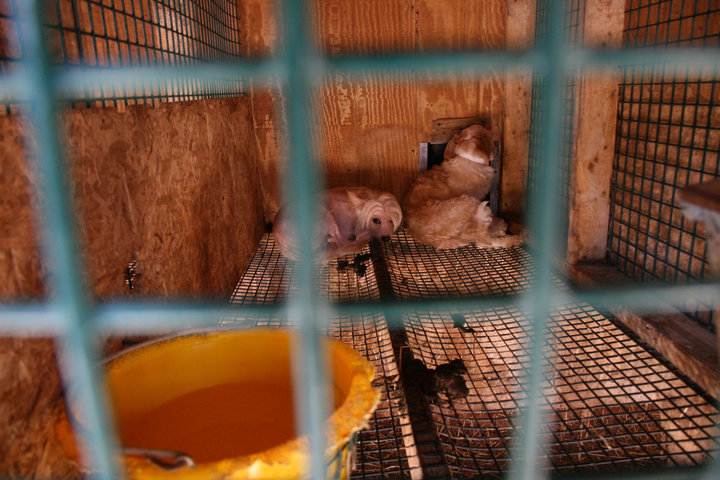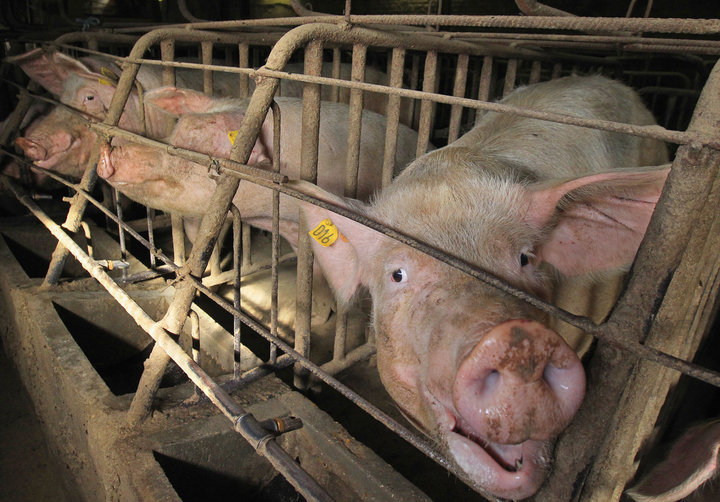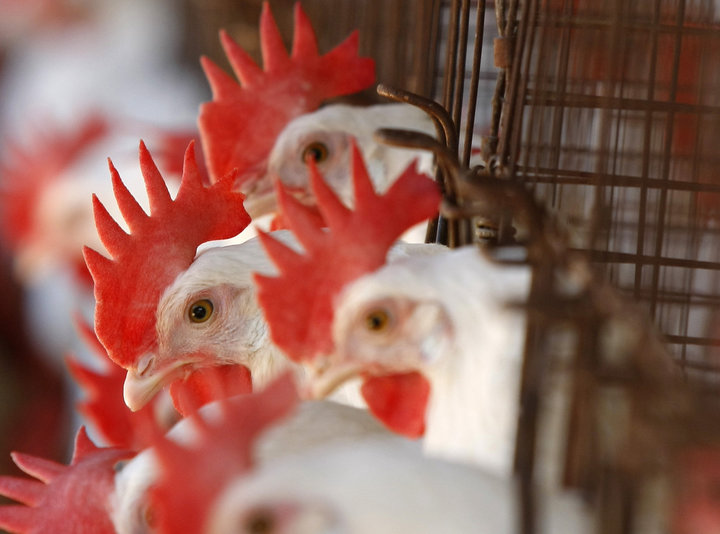Huffington Post: The Farm Bill Could Be A Huge Blow To Animals

Mike Blake / Reuters
The Protect Interstate Commerce Act would ban states like California from prohibiting the sale of eggs from battery-caged hens.
By Hilary Hanson | May 17, 2018
An amendment threatens farm animal protections, food safety laws and rules on invasive species.
As Congress fights over the latest farm bill, one proposal has animal welfare and food safety advocates ― and even some farm industry groups ― sounding the alarm.
They’re opposing the Protect Interstate Commerce Act, an amendment from Rep. Steve King (R-Iowa) that they fear could jeopardize thousands of state and local laws regulating food and farming.
Also known as the King Amendment, this addition to the draft farm bill would ban states from imposing rules on the sale of out-of-state agricultural products if those rules are more restrictive than federal law ― or the law within a product’s state of origin.
So what might this look like in practice?
King has repeatedly pointed to a proposed California law that would ban the sale of eggs from hens raised in battery cages — a housing system involving rows of small cages typically deemed inhumane by animal welfare experts. Since battery cages are legal at the federal level, as well as in many states that produce eggs, PICA would bar California’s proposal.
Because the term “agricultural products” is so broad, it’s difficult to tell how far-reaching the legislation would be. Some animal welfare and pet industry groups fear it might even extend to laws aimed at stopping the sale of sick or abused dogs from out-of-state puppy mills, The Hill reports.
While it’s obvious why many animal welfare advocates would be against PICA, the amendment’s ramifications could extend much further. A Harvard Law School analysis found that PICA “has the potential to void thousands of state and local laws concerning public health and safety,” including laws surrounding food safety, packaging and invasive species.
Take California and Oregon, which both have regulations to prevent the import of plants carrying the glassy-winged sharpshooter, an insect that harms grape crops.
“PICA may interfere with those states’ ability to enforce such regulations,” the report says. “For example, under PICA a law requiring out-of-state producers to treat agricultural products with pesticides to kill the sharpshooters prior to import arguably places an additional and impermissible condition on them.”
Another law that could be voided under PICA, the report says, is a Florida ban on the sale of citrus fruit tainted with arsenic.

The Washington Post via Getty Images
Two out of nearly 1,000 dogs rescued from a West Virginia puppy mill in 2008.
The potentially widespread consequences of PICA are why such a diverse set of interests are aligned against it. Groups ranging from Farm Sanctuary ― which promotes animal welfare and veganism ― to the Alabama Poultry Growers Association are urging Congress not to pass the farm bill with the amendment attached. Environmental groups, food safety advocates, workers rights organizations and numerous individual farmers and state lawmakers have also expressed opposition.
And some legal experts fear that the act could even wind up changing the way states can regulate farming within their own borders — not just the sale of out-of-state products.
King has said that it’s not his intention for it to work that way.
“If California, or any other state, wants to regulate how products are made within their borders, they can do so,” he said in an April press release about the amendment.
But Rebecca Cary, senior staff attorney at the Humane Society of the United States, told HuffPost things might not be so clear-cut. The reason? PICA’s vague wording opens it up to extremely broad interpretation.

Yves Herman / Reuters
Pregnant pigs in gestation crates, also known as sow stalls, at a farm near Brussels, Belgium, in 2012.
She explained in an email: “In-state production laws could be vulnerable because the amendment places conditions not on the SALE of agricultural products, but on the production or manufacture of agricultural products that are sold in interstate commerce.”
One potential victim of PICA, the Humane Society warns, is a landmark Massachusetts law to prohibit the intensive confinement of animals through systems like pig gestation crates.
“Because most Massachusetts producers ultimately sell at least some of their products in markets outside of the state, those could be considered impermissible standards under King’s amendment,” Cary said.
King wrote a similar amendment to the farm bill back in 2014, but it didn’t make it into the final version. Congress passes a farm bill about every five years ― the 2014 bill was passed late ― that sets policy for farms, food and other areas within the scope of the Department of Agriculture.
This year, the GOP is struggling to get votes for the bill, in part because of disputes over a provision that would drastically limit access to food stamps.
